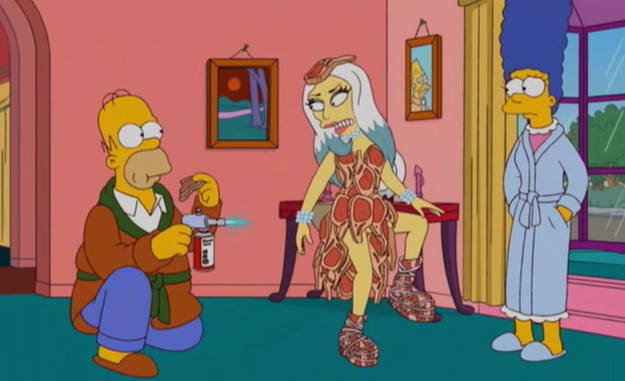This Wild 'The Simpsons' Fan Theory Will Blow Your Mind
by Andy Neuenschwander

There are fundamental questions about "The Simpsons," including why the family doesn't age, why Homer seems to live through some serious physical abuse, and why everything that happens in Springfield is surreally odd.
A die-hard Simpsons fan has a simple answer to all of those questions in the form of a new fan theory.
Redditor Hardtopickaname thinks he may have an explanation for everything that happens in "The Simpsons": It's actually all in Homer's head.
You see, in "The Simpsons" season four, episode three ("Homer the Heretic"), Homer meets God. Homer asks God a thoughtful question: "What is the meaning of life?" But God refuses to answer, and tells Homer he'll find out when he dies."
"I can't wait that long!" Homer says.
"You can't wait six months?" God responds.
Considering God is omniscient and omnipotent and all, we have to assume he knows what he's talking about, right? From there, the Redditor's theory points out that in April of the following year, almost exactly six months after the air date of "Homer the Heretic," the show aired an episode called "So It’s Come to This: A Simpsons Clip Show."
In that episode, Bart pranks Homer by shaking up a Duff beer can in a paint shaker, causing a beer explosion so big that it blows the roof off the house and puts Homer in a coma.
At the end of that episode, Homer wakes up and starts choking Bart in retaliation, as he often does...but what if Homer didn't actually wake up?
Hardtopickaname theorizes that Homer is still in that coma, and that's why nobody ages on the show. Maggie, Bart and Lisa all stay the same age because that's how Homer remembers them. The theory also points out that there's a tonal shift in the show after that April 1993 episode, and things start getting a little more absurd.
But what about the appearances of current-day celebrities and the up-to-date pop culture references? Well, the argument there is that Homer is still processing things he hears around him and including it in his dreams: perhaps the nurses leave the television on in his room and he absorbs everything he needs to know about, say, Lady Gaga.
We doubt that "The Simpsons" would stoop to the "it was all a dream" trope to end their show unless they were doing it ironically, but it makes you think, doesn't it?